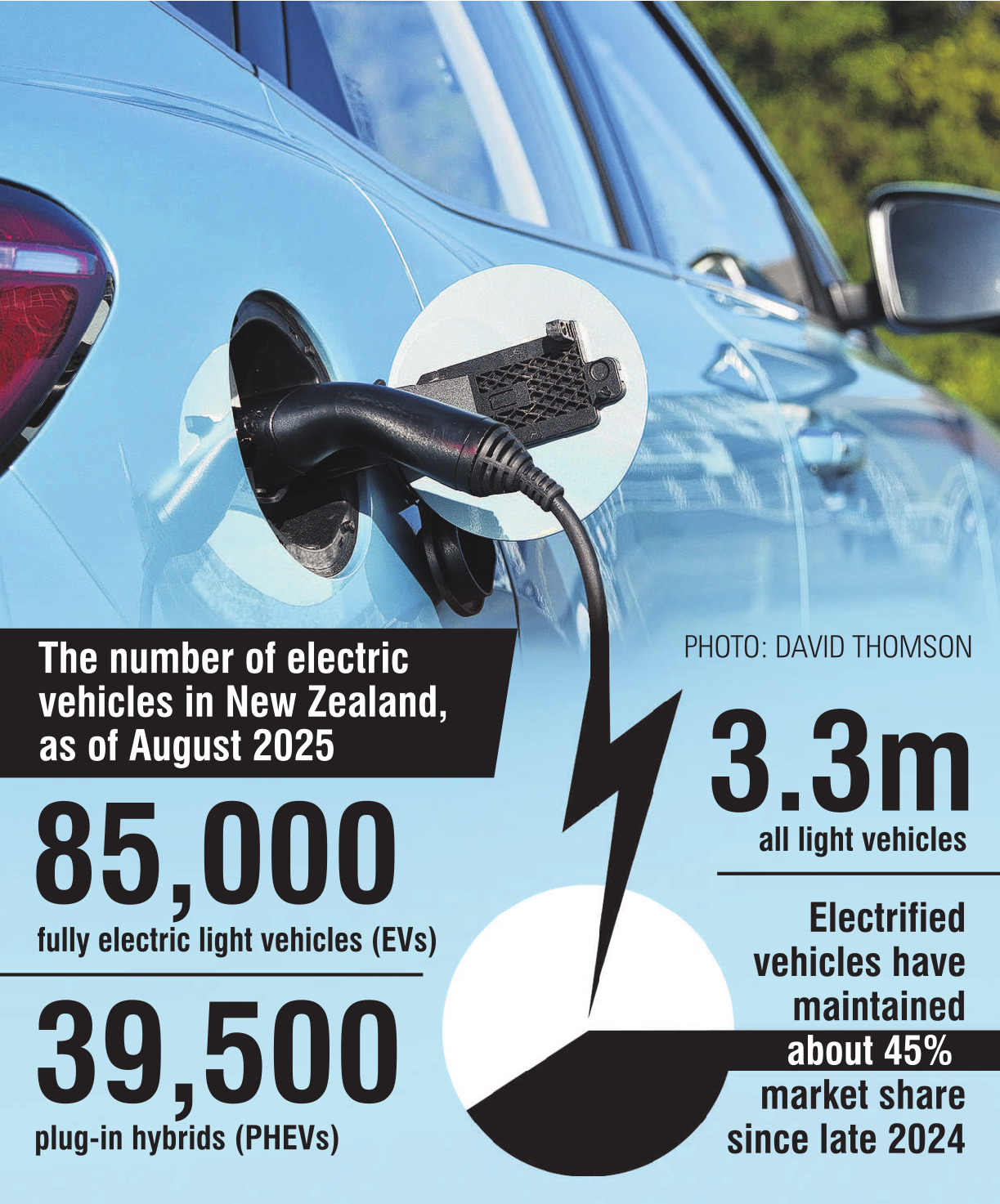
A rise in electric vehicles (EVs) is expected to help reduce future emissions, but the additional demand for charging them may place pressure on New Zealand’s electricity grid by creating peak loads.
New University of Otago research shows different seasons in different regions would have different impacts on how much electricity was needed to charge an electric vehicle.
Research leader and Otago Sustainable Energy Programme director Associate Prof Michael Jack said electric vehicle owners would need to charge their cars more in winter than in summer, leading to an increase in the winter electricity peak by 2050.
He said electricity consumption for vehicle charging could vary seasonally by up to 16%, and in some regions it could increase winter monthly consumption by up to 30% by 2050.
"While internal combustion engines use waste heat, electric vehicles require energy from their batteries to heat their passenger cabin and regulate their battery temperature, so it is expected they will need more energy per kilometre in colder weather.
"This seasonal variation in energy for charging electric vehicles, like that caused by space heating, is challenging to address in a future renewable-dominated electricity grid."
He said previous studies had focused on daily variation in charging, and the ways it could be shifted into off-peak periods.
Using data from the citizen science organisation Flip the Fleet, Assoc Prof Jack said he and fellow researchers built a statistical model of the energy efficiency of EVs across the four seasons.
"We combined this with future projections of electric vehicle uptake, to quantify the seasonal variability in electric vehicle charging and its impact on future winter electricity peaks."
He said the researchers tested their model on a range of EV models that are available in New Zealand.
"Interestingly, in addition to having very different baseline efficiencies, different vehicle models were also impacted by cold weather in varying ways," he said.
Due to temperature variations throughout New Zealand, there could be up to 18% variation in energy efficiency between regions for the same vehicle, while vehicles in colder climates such as Otago and Southland could use up to 16% more electricity in winter.
"The results indicate that EVs will place significant pressure on regional lines capacity, particularly in colder areas, with important implications for future electricity infrastructure planning."














